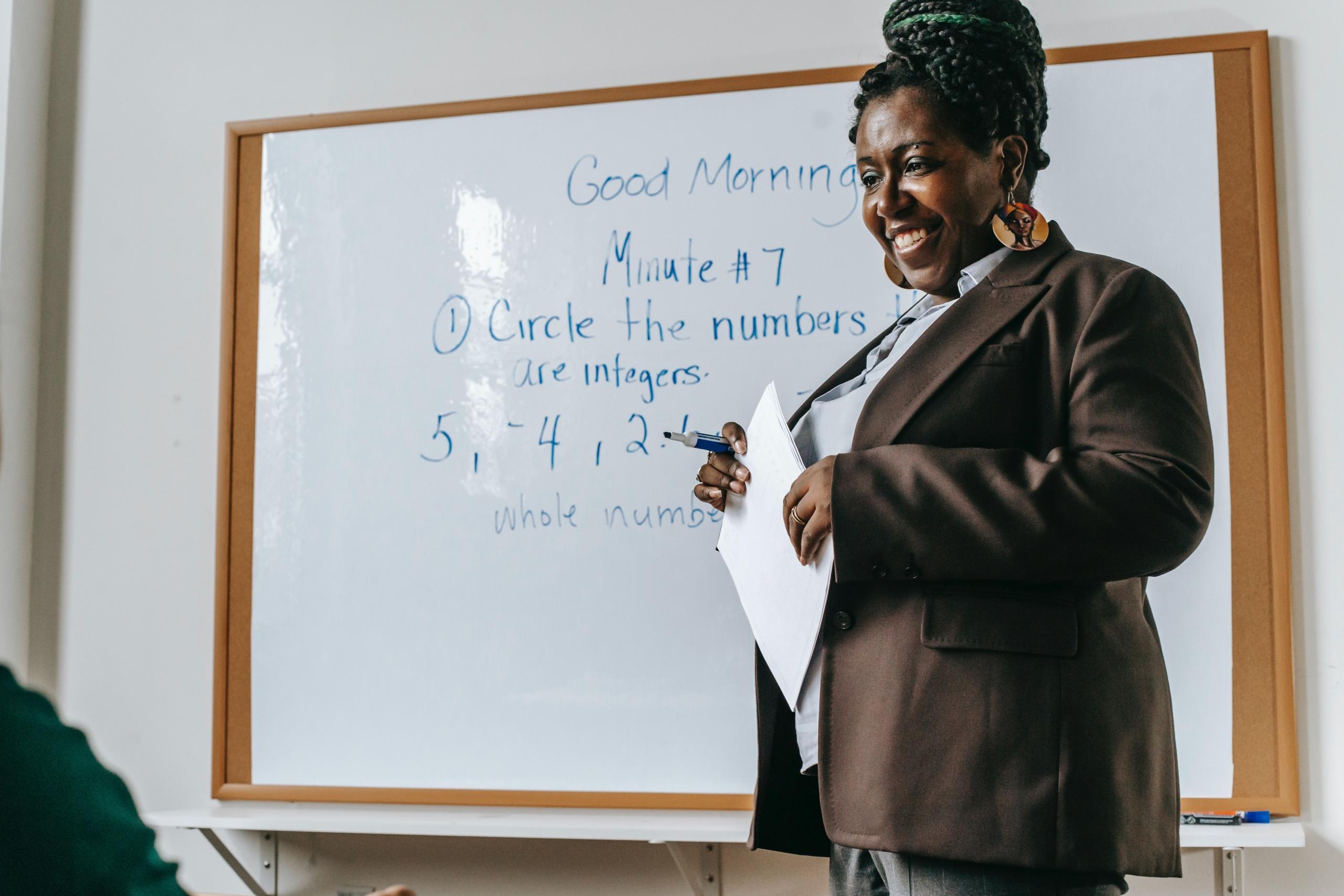As a result of global education organisations like the UN and OECD on the rise, many countries over the past few decades have found themselves in a precarious position with regards to academic standards. South Africa in particular has always lagged behind other countries in areas of maths and science. In fact, much of the global academic community have questioned how South Africans learn basic arithmetic.
Of course, this puts strain on the national maths and science curricula and many students seeking help outside of their regular classrooms. If you or your child have been searching terms like all about arithmetic sequence, then this article could be for you.
Whether you are slogging through trigonometry, calculus or want to know more about an arithmetic sequence, there are outstanding maths tutors all over South Africa, and even the world, who can help with homework, exam preparation or simply general maths confidence.
Want to give private lessons?
Join the Superprof community and share your knowledge with inquiring and motivated students.
Definition of Arithmetic
Mathematical concepts and even the fundamentals of arithmetic operations have tortured students since the beginning of time. One reason is that many students don’t know how to do basic arithmetic and another is that arithmetic can be difficult to define. Derived from the Greek word for numbers, arithmos, at its most basic can be defined as the computation of numbers through the processes of addition, subtraction, multiplication, division and more.
While early examples of these concepts can be traced back to 18 0000 BCE on the continent of Africa, they were more fully developed by infamous mathematicians in Greece, Egypt and Europe over many centuries. It is thanks to this complex and long history that it can be helpful to know how to do basic arithmetic before tackling more challenging maths concepts.
Types of Numbers: All About Arithmetic Sequence
While some of the fundamentals of arithmetic operations belong in nursery school, it can also be taught as a bridge to high school maths and even at tertiary education level. The idea is to try and understand how the different numbers in various algebraic and other arithmetic expressions are integral to the success of basic and advanced algebra, geometry and pre-calculus.

Natural Numbers
Natural numbers can be defined as a set of numbers that can be counted and do not include those that have negatives or decimals. Examples of natural numbers include: 1, 2, 3, 4 etc. When the number 0 is included in these, it is known as a set of whole numbers and this is the most basic classification concerning the fundamentals of arithmetic operations.
Integers
This set of numbers comprises both natural and whole numbers, but also all of the negative numbers. Once again, this set will include fractions and decimals.
Rational Numbers
Rational numbers are those that include integers, fractions and decimals. However, this can only be classified in this way if each decimal is able to be written as a fraction when the denominator is not zero and when both the denominator and integer are both integers.
Irrational Numbers
A set of irrational numbers is totally separate from those included in a set of rational numbers. This means that they are a set of numbers that cannot function as a fraction of two integers. Some examples include:
- Square roots that are not perfect squares, such as the square root of 2
- Pi
- E
- Phi
Real Numbers
When you learn basic arithmetic, you will also find out that Real Numbers are the set of both rational and irrational numbers.
Want to give private lessons?
Join the Superprof community and share your knowledge with inquiring and motivated students.
Fundamentals of Arithmetic Operations
Just about anyone can learn how to do basic arithmetic or algebraic equations without a hitch. However, when the fundamentals of arithmetic operations and maths concepts are not grasped from the beginning it can ruin any maths career.
The key is to learn basic arithmetic, but if you do what can you expect to learn? Here are a few basics you can expect to find in any maths programme.
Arithmetic Laws
Generally speaking, there are three main laws to remember when you learn basic arithmetic. You might not find these laws in high-level maths classes, but when you know what they are they can help you to grasp more complex rules later on in your maths journey. The three laws apply to rational numbers:
Commutative Law
This law, which applies to both multiplication and addition states that:
- a + b = b + a
And
- ab = ba
This law can also be applied to percentages, for example:
- a% of b = b% of a
Associative Law
Once again, this law applies to both addition and multiplication. For example:
- (a + b) + c = a + (b + c)
And
- (a x b) x c = a x (b x c)
Distributive Law
This law states that:
- a x (b + c) = a x b + a x c
While the associative and commutative laws do not apply to division and subtraction, the distributive law does not apply to division. They may seem simple, however these math skills and concepts which are all about arithmetic sequence, can have applications that will help you to understand operations and concepts like:
- System of equations
- Exponents and laws of exponents
- Word problems involving inequalities or quadratic equations
If you’re still a little confused as to how these differing laws work, try practicing a few equations online or with your maths tutor that are all about arithmetic operations.
Learn the Fundamentals of Arithmetic Operations with the Right Tutor

Depending on what your needs are, the perfect maths tutor is easy to find if you simply know where to look. Whether you want to learn how to do basic arithmetic or complex trigonometry, there are however, a few guidelines on how to find the perfect maths tutor.
Maths Courses with a Private Tutor
Arithmetic is typically taught at the primary school, however, problems in maths courses or concepts that involve arithmetic can endure well into advanced maths. As a first step to deciding whether or not a private maths tutor is right or not for you, determine which areas of maths are posing the greatest challenges.
For example, if your child is at primary school level, then it makes sense to find a tutor who specialises in the primary grades, is good with children and also good at teaching. When it comes to senior primary maths on the other hand, an algebra or even general maths tutor who is also qualified to teach arithmetic that involves complex equations, polynomials, linear equations and inequalities is a good find.
Private tutors for high school and university-level students should be able to solve arithmetic problems linked to subjects like chemistry, physics and algebra. These tutors are often well-versed in teaching both maths and science and could also be physics or chemistry tutors.
Whether you need a maths tutor for help with the arithmetic problems that are holding you back from achieving excellent matric maths results, or help with your Grade 7 algebra. Test prep math courses can go through everything from concepts from 7th-grade math, rational functions and rational expressions, polynomial and trigonometric functions and even matrices.
Online Math Resources
If you are challenged by arithmetic or require extra exam preparation help, you could look for online arithmetic resources. One website that is highly recommended for covering extensive arithmetic concepts at a primary school level is AAA Math. It could give you, or your child, the opportunity to take maths extra classes near me and also practise some of the problems that are being faced in the subject.
While AAA Math has webpages that are dedicated entirely to geometry and algebra, Wolfram Alpha is an excellent resource for anyone looking for arithmetic help on a higher level. Walking you through all the definitions and complex problems, this website also offers many practice examples for subjects ranging from calculus to both elementary and complex analysis.
Free Math Help
While finding free online maths assistance is useful when you don’t have a budget, there are better solutions that are more affordable than you think. Ask the school maths teacher or local library for recommendations or head straight to Superprof where there are options for every budget and level.
Using Superprof is filled with extraordinary benefits. For instance, you could receive your first lesson for free which is really when important when you consider that the personality fit between you and your tutor is fundamental to your success.
Use the website’s location function to find someone near to you. Alternatively, choose an online tutor from millions around the world without ever having to leave the house – all you need is Zoom, Google Meet or similar, an internet connection and a webcam.
Ready for maths lessons online? Search for a tutor on Superprof today!
Want to give private lessons?
Join the Superprof community and share your knowledge with inquiring and motivated students.
Summarise with AI:





